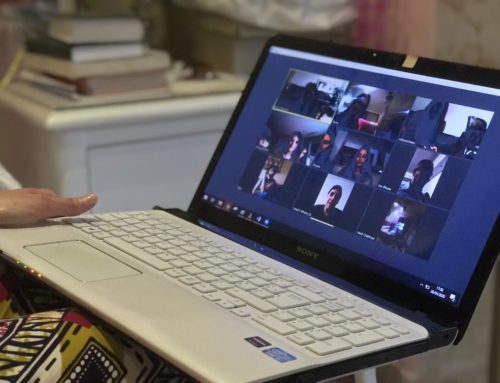 Your nonprofit has a number of tools at its disposal to help it build relationships with reporters and guide news coverage.
Your nonprofit has a number of tools at its disposal to help it build relationships with reporters and guide news coverage.
One of the least talked about — yet potentially most dangerous — of these tools is going “off the record”.
For most nonprofit media relations professionals, going off the record is rarely necessary.
But, if done properly, it can help your organization navigate some sticky situations and provide reporters with valuable information that can help them better understand complex or controversial topics.
What Is ‘Off the Record’?
It’s important to remember that every conversation you have with a journalist is considered on the record.
You can learn more about what that means in our recent post on this topic. But, to put it simply, everything you say or do during any encounter with a member of the media can be reported.
As a news source, however, you do have the option of going “off-the-record” — meaning that you and the reporter can mutually agree that what you share cannot be used in any story.
If both you and the journalist agree to go off the record, anything you share during that portion of the conversation cannot be attributed to you. In fact, the reporter shouldn’t use any of that information in her reporting unless she is able to confirm it through another source.
She should also refrain from telling any other source that you provided the information to her off the record as part of her reporting.
That doesn’t stop her from attempting to confirm the information that you’re sharing. You should assume that if you share a tasty off-the-record tip with a reporter, that reporter is going to try to find a way to get the information elsewhere.
I’ve known sources who have shared information off the record with a reporter and then were upset to learn that the reporter went to another source to confirm, and eventually report on, that information.
This is often what happens when information is shared off the record. The reporter has every right to pursue the lead — she just can’t say the lead came from you.
How Does It Work?
To share something off the record, both the source and the reporter must agree that the information is being provided on an off the record basis.
Often a source will initiate the decision and will offer to share some information off the record with the reporter.
Sometimes, a reporter — sensing that a source is uncomfortable with sharing some information — will offer to go off the record, with the hope that the source will decide to share the tip knowing that the information will not be connected to him if it ends up being confirmed.
As a source, you are under no obligation to agree to a reporter’s offer. You can simply choose to keep the information to yourself and redirect the conversation.
If both parties agree to go off the record, it’s up to the reporter to keep the information private. Many reporters will actually close their notebooks or turn off their recording devices to ensure that it doesn’t find its way into their reporting.
Because reporters value the trust of their sources, most are very careful with off-the-record information. As noted earlier, they might try to get someone else to share the same information on the record. But any good reporter will be diligent in keeping their sources confidential and will instead try to confirm the information through other sources.
At any point during the off-the-record conversation, either party can ask to put the conversation back on the record.
The decision to go back on the record must be agreed to by both parties — and it should be clearly negotiated.
Quite simply, you want to be sure there is no confusion over what’s fair game and what’s being shared off the record.
When Is It Useful?
It’s important not to be too cavalier about sharing off-the-record information. Reporters aren’t going to want to talk to you if nothing you say can ever be used.
But there are some situations where you should consider it.
For instance, off-the-record information can be useful when you are:
- Providing context to help a reporter better understand the motivations for a controversial decision — Sometimes, you can help steer a reporter away from reporting on something or being critical if you can provide some background insights into why it happened.
- Sharing information that you’re not yet ready to announce. Your organization might be making an announcement in the future and, by providing off the record information, you can help the reporter prepare for the news.
- Offering sensitive information that you hope the reporter will find on her own. Sometimes, you want the facts to get out — but you aren’t in a position to have your name attached to those facts in a reported story.
Don’t Forget
By sharing information off the record, you can help position yourself and your organization as trusted sources. You can also use off-the-record conversations to help reporters discover context and find information that can help advance your organization’s mission and goals.
Always remember to be judicious when you go off the record. Use it sparingly — and be crystal clear about the terms of any decision to go off the record.
By doing so, you’ll avoid misunderstandings that could jeopardize your relationship with a reporter and your organization’s reputation.






